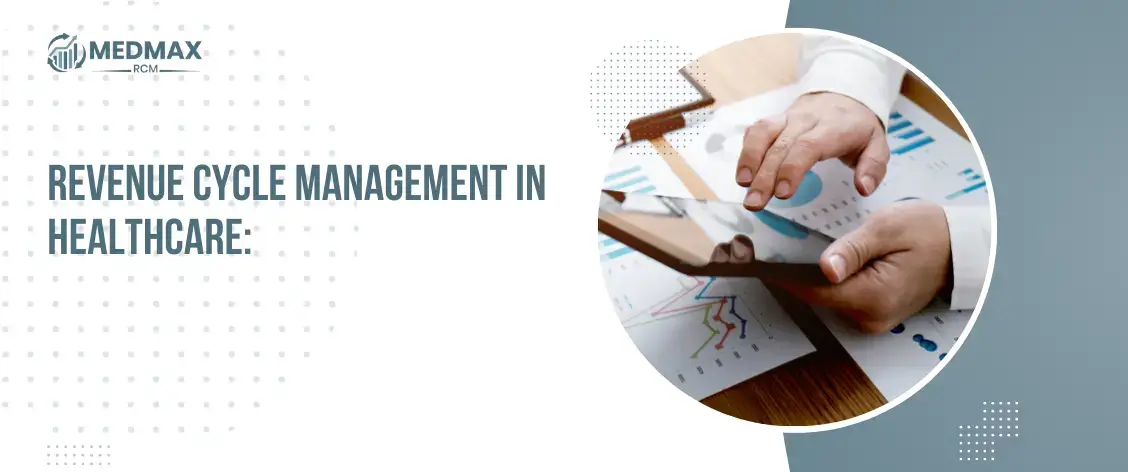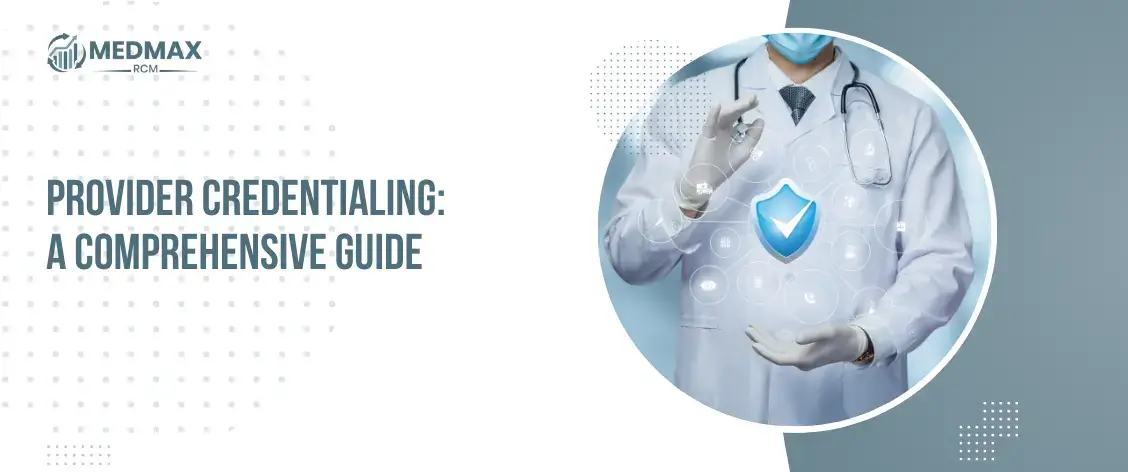
Revenue Cycle Management in Healthcare: Medmax RCM
Healthcare providers are facing unprecedented challenges in today’s complex and constantly changing healthcare environment. The rising costs of healthcare, complex billing and coding processes, and increasing regulatory requirements make it challenging for providers to manage the revenue cycle effectively. That’s where Revenue cycle management in healthcare comes into play.
It’s worth mentioning that RCM is a constantly evolving field, and it’s important for healthcare providers to stay up-to-date with the latest trends and best practices. For example, the increasing use of electronic health records (EHRs) and other digital technologies are transforming the revenue cycle and requiring RCM companies to adopt new approaches and technologies.
Another trend to keep an eye on is the growing emphasis on value-based care. This shift away from fee-for-service models is changing the way healthcare providers are reimbursed and requiring them to focus on outcomes rather than volume. RCM companies that can help revenue cycle management in healthcare and healthcare providers navigate these changes and optimize their revenue cycle accordingly will be in high demand.
Table of Contents
ToggleRevenue Cycle Management in Healthcare
Revenue cycle management in healthcare is the process of managing the entire revenue cycle of a healthcare organization, from patient registration and insurance verification to billing and payment. The goal of Rcm healthcare services is to optimize the financial performance of the organization while maintaining high-quality patient care. A revenue cycle management company, also known as an RCM specialist, provides a range of services designed to help healthcare providers and revenue cycle management in healthcare streamline their revenue cycle and improve their financial performance.
The role of a revenue cycle specialist is to help healthcare providers manage the many different components of their revenue cycle. This includes patient registration, insurance verification, coding, billing, collections, and payment. By outsourcing these functions to a revenue cycle management company, healthcare providers can free up valuable time and resources to focus on providing high-quality patient care.
Revenue cycle management in healthcare services are designed to help healthcare providers maximize their revenue and improve their financial performance. These services can include:
- Patient registration and insurance verification: RCM companies can assist healthcare providers and other medical organizations like hospitals & hotels with the registration and insurance verification process, ensuring that all relevant information is accurately captured and processed.
- Coding and billing: RCM specialists can help healthcare providers navigate the complex billing and coding process, ensuring that all claims are submitted accurately and on time.
- Collections: RCM companies can help healthcare providers recover outstanding accounts receivable and improve their overall collections process.
- Payment: RCM specialists can assist healthcare providers with the payment process, ensuring that payments are received and applied correctly.
The benefits of Revenue cycle management in healthcare services are numerous. By outsourcing these functions to a revenue cycle management company, healthcare providers can free up valuable time and resources to focus on providing high-quality patient care. In addition, RCM services can help healthcare providers improve their financial performance, reduce the risk of denied claims, and ensure compliance with regulatory requirements.
However, it’s important to note that not all RCM companies are created equal. Healthcare providers should carefully evaluate potential RCM partners to ensure they have the expertise, experience, and technology necessary to meet their specific needs.
When evaluating an RCM company, healthcare providers should consider the following factors:
- Experience: Look for an RCM company that has extensive experience in the healthcare industry and a deep understanding of the revenue cycle.
- Technology: The RCM company should have state-of-the-art technology and systems to automate the revenue cycle and improve efficiency.
- Compliance: Ensure that the RCM company is fully compliant with all relevant regulations and standards, such as HIPAA and ICD-10.
- Customization: The RCM company should be able to tailor its services to meet the specific needs of the healthcare provider.
- Customer service: Look for an RCM company with a proven track record of excellent customer service and a commitment to ongoing improvement.
By carefully evaluating potential RCM partners, healthcare providers can ensure they partner with a company that can help them maximize their revenue and improve their financial performance.
Revenue Cycle Management in Healthcare Conclusion
Revenue cycle management in healthcare is a critical component of the healthcare industry, and a revenue cycle management company, also known as an RCM specialist, can play a vital role in helping healthcare providers manage the many different components of their revenue cycle. By outsourcing these functions to a trusted RCM partner, healthcare providers can focus on providing high-quality patient care and improving their financial performance.
In today’s complex and constantly changing healthcare environment, revenue cycle management in healthcare is more important than ever. A revenue cycle management company, also known as an RCM specialist, provides a range of services designed to help healthcare providers streamline their revenue cycle and improve their financial performance. Whether it’s patient registration, insurance verification, coding and billing, collections, or payment, a revenue cycle specialist can help healthcare providers manage the many different components of their revenue cycle and improve their overall financial performance.
Additionally, RCM companies also offer a range of healthcare services that can help providers streamline their operations and improve patient satisfaction. These services can include patient registration, insurance verification, claim submission, and payment collection, among others. By outsourcing these functions to a trusted RCM partner, healthcare providers can free up valuable resources and focus on providing high-quality patient care.
It’s also important to note that effective Revenue cycle management in healthcare can help healthcare providers reduce the risk of denied claims, avoid costly errors, and improve their overall cash flow. By automating many of the manual processes involved in the revenue cycle, RCM companies can help providers reduce the risk of errors and improve the accuracy of their financial data.
By outsourcing these functions to a Revenue cycle management company, healthcare providers can focus on what they do best – providing high-quality patient care. By partnering with a trusted RCM partner and staying up-to-date with the latest trends and best practices, healthcare providers can improve their financial performance and ensure they are well-positioned for success in today’s rapidly changing healthcare landscape.

Williams Clark
Williams Clark is a dual-certified healthcare professional with CPC and CHC credentials. With over a decade of experience in medical billing and compliance auditing, David provides deep insights into payer policies, denial prevention, and accurate coding practices. His mission is to empower medical billers and healthcare providers with the knowledge to stay compliant and profitable.





